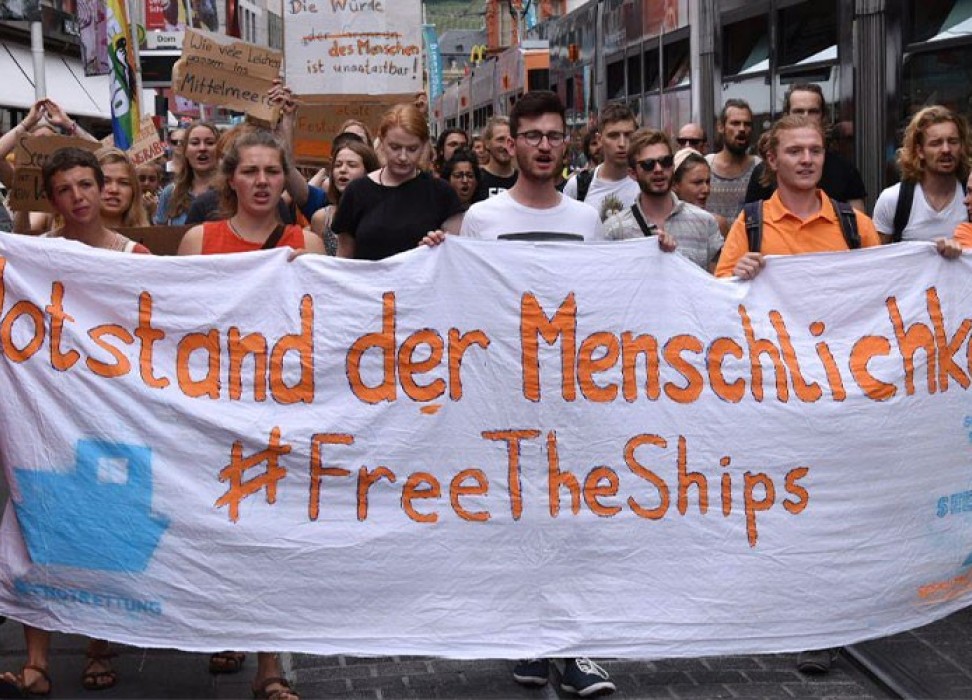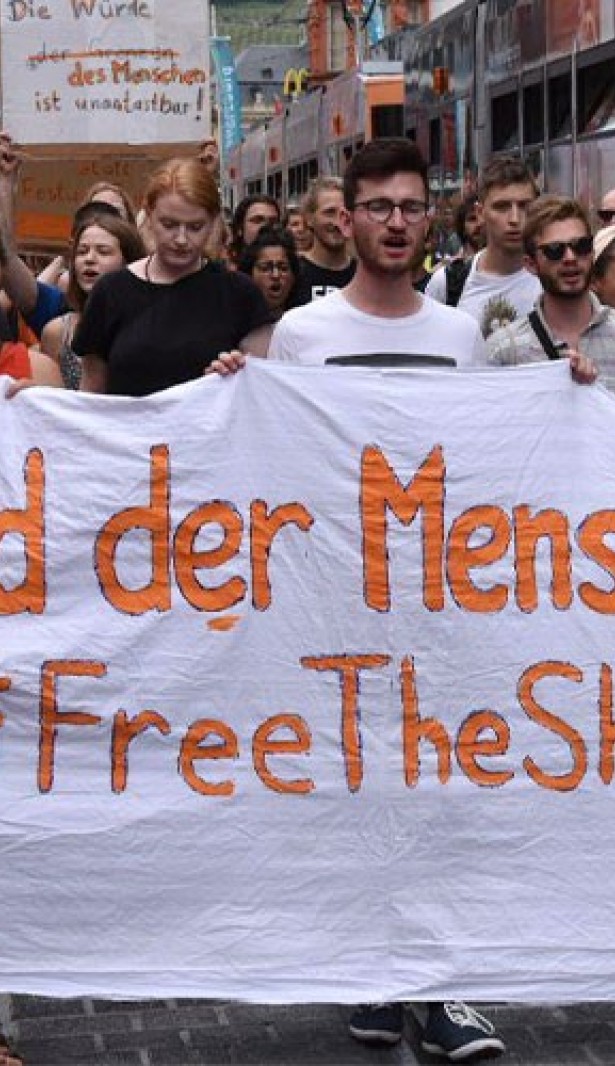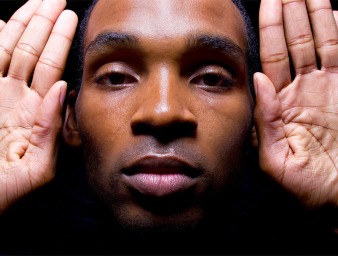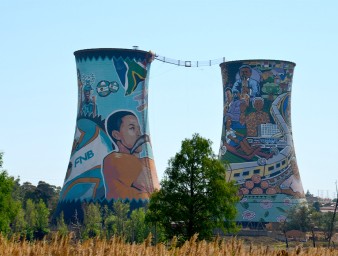“To us, there are no migrants . . . there are people”
18 December 2019

A political standoff over rescue boats for migrants making the life endangering journey across the Mediterranean Sea was the catalyst for Alina Lyapina to establish what has today become one of Germany’s most influential migrant rights advocacy groups.
In June 2018, a major NGO ship rescuing people on the main migration routes between north Africa and southern Europe was refused entry to Italian and Maltese ports. This put hundreds of lives at risk by delaying urgent medical treatment.
Lyapina, then 26, was angered by the standoff, the massive death toll in the Mediterranean Sea and what she viewed as “the European Union’s inaction.” In July 2018, she co-founded a movement in Germany called Seebrücke (in English, Sea Bridge) to campaign for the fundamental human rights of people who have had to flee their homes.
Today, the same dangerous sea crossing continues to take numerous lives. In 2019 alone, so far, there are an estimated 1,243 people dead or missing.
Challenging racism and the discourse of fear
Described by Lyapina as the largest anti-racism movement in Germany, she says that Sea Bridge has “provided countless opportunities for vast parts of civil society to take a stand on the isolationism of the European Union and the troubling migration policy of Germany.” In the last one and a half years, she estimates that around half a million people have taken to the streets to stand up for migrant rights.
She believes that one of their main achievements has been to open up the conversation space where civil society and local authorities can have “healthy, rational debate which is not driven by fear, and to look at practical solutions and responses.”
Lyapina’s message to people who may experience fear of new people coming to their cities or towns: “The people you call foreigners face the same daily problems you face. What unites you is the common struggle against those injustices you are both experiencing. We need to address the structural problems in the current political and economic set-up. A good life for everyone is possible no matter what the racist far right or those who actually cause those injustices tell you.”
Safe harbours for more solidarity
A grassroots movement, one of Sea Bridge’s overwhelming successes has also been its ‘Create Safe Harbours’ campaign. The organisation has urged cities throughout Germany to show solidarity and humanity by ensuring their communities receive more people rescued from distress at sea, in addition to the existing ‘quota’ system used in Germany. The same cities have also been asked to join a city alliance of Safe Harbours, and/or to they assume sponsorship of a sea rescue organisation.
“By putting in place humane and human rights-based reception programs, this restores dignity of the people who have survived this harrowing journey,” says Lyapina.
Since the establishment of Sea Bridge, more than 100 German cities, towns or municipalities have claimed themselves safe harbours, thus expressing their willingness to directly accept people rescued at sea.
The movement has also now expanded into Switzerland, Austria and Belgium.
“To us, there are no migrants . . . there are people”
Lyapina is adamant that language around migration plays a significant part in the perception of new people arriving to a community. For her, a change in language will help to shape a more positive discourse of openness and welcome, rather than one of fear and divisiveness.
“To us, there are no migrants,” she says. “There are people who used to live in Aleppo, and now they are in Berlin. As a human rights movement, we are convinced that all you need to know is that humans are tortured and killed and live in detention camps, in order to trigger political action. Their origin or background of any sort is absolutely irrelevant in this situation.”
Herself the daughter of Russian immigrants to Germany, Lyapina understands the struggles of people arriving to a new country. “There is certainly a personal aspect as to why I am involved in this work. I wasn’t born a German citizen, and I can very well imagine what they are going through in their everyday lives.”
Asked if she will continue to stand up for the rights of people who are on the move, Lyapina says stopping anytime soon is not on her radar.
“There are too many people in this world who do not have a political voice,” she states. “Although we have been making a lot of progress in Germany, the political environment in the European Union regarding migration has been worsening. We simply cannot afford to just stop and do something else.”
Disclaimer: The views, information and opinions expressed in this article are those of the persons featured in the story and do not necessarily reflect the official policy or position of the Office of the UN High Commissioner for Human Rights.
18 December 2019




